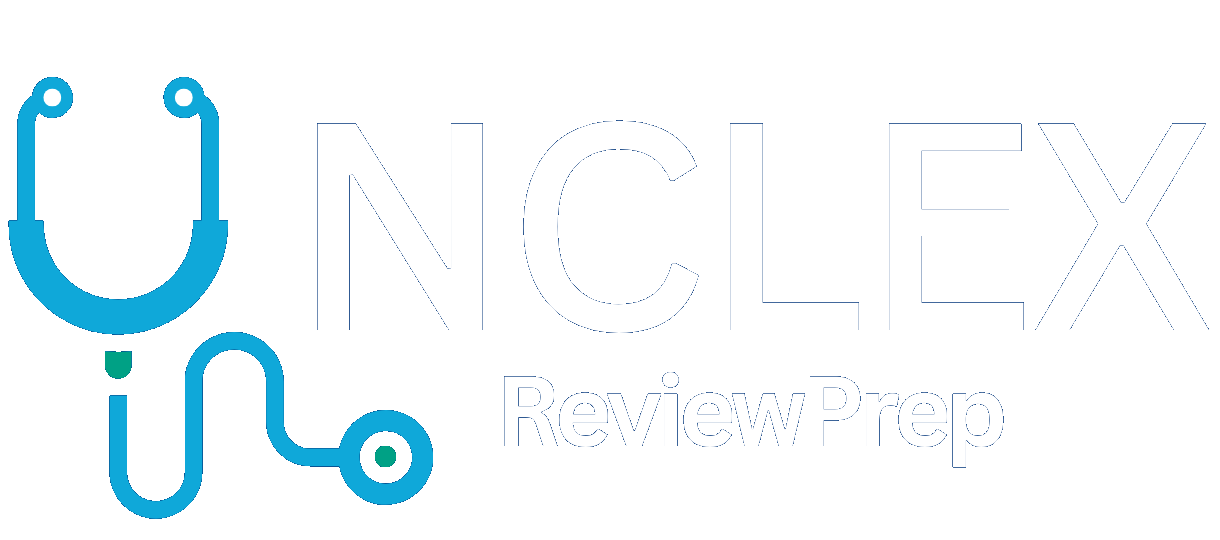What is the Pass Rate for the NCLEX? Key Facts You Should Know
Understanding the NCLEX pass rate can help you gauge your chances of success and identify the factors that contribute to achieving a passing score. The NCLEX (National Council Licensure Examination) is designed to test your ability to provide safe, effective nursing care. While the exam is challenging, analyzing pass rates can provide insight into preparation strategies and what to expect.
In this blog, we’ll break down the NCLEX pass rates, compare first-time test-takers to repeat candidates, and explore what these numbers mean for you. We’ll also provide actionable tips on improving your chances of passing.
NCLEX Pass Rate Statistics: A Breakdown
The NCLEX pass rate statistics are published annually by the National Council of State Boards of Nursing (NCSBN), providing data for both the NCLEX-RN and NCLEX-PN exams. These numbers help nursing candidates, educators, and boards evaluate the success rate of candidates.
1. NCLEX Pass Rates for First-Time Test-Takers
The pass rate for first-time test-takers is significantly higher than for repeat candidates. Here’s a look at the most recent data:
NCLEX-RN Pass Rates (First-Time U.S.-Educated Candidates):
| Year | Pass Rate |
|---|---|
| 2022 | 82.5% |
| 2023 | 83.5% |
| 2024 (YTD) | ~84% |
NCLEX-PN Pass Rates (First-Time U.S.-Educated Candidates):
| Year | Pass Rate |
|---|---|
| 2022 | 79.6% |
| 2023 | 80.2% |
| 2024 (YTD) | ~81% |
Key Insight: First-time candidates who prepare thoroughly have a much higher likelihood of passing than those retaking the exam.
2. Pass Rates for Repeat Candidates
The NCLEX pass rate drops for candidates who are retaking the exam:
| Candidate Type | NCLEX-RN Pass Rate | NCLEX-PN Pass Rate |
|---|---|---|
| First-Time U.S. Educated | 83.5% | 80.2% |
| Repeat Test-Takers | 45–50% | 40–45% |
Why Do Repeat Candidates Have Lower Pass Rates?
- Inadequate preparation after failing the first attempt.
- Test anxiety and pressure on a second try.
- Failure to analyze weaknesses and target problem areas effectively.
Internal Link: If you’ve failed the NCLEX before, check out our RN/PN Exam Score Updates to identify areas of improvement and boost your confidence.
What Influences NCLEX Pass Rates?
Several factors influence the NCLEX pass rate, including candidate preparation, nursing programs, and test-taking strategies. Understanding these factors will give you a better sense of how to improve your odds of passing.
1. Quality of Nursing Education
Nursing programs play a significant role in preparing students for the NCLEX. Higher pass rates are typically associated with programs that:
- Emphasize clinical reasoning and critical thinking.
- Include NCLEX-style practice exams in their curriculum.
- Offer strong support systems for students (e.g., tutoring, study resources).
Tip: Research pass rates of nursing programs before enrolling. Accreditation bodies often track these statistics.
2. Effective Study Plans
Candidates who develop structured study plans see better outcomes on the NCLEX. Successful candidates:
- Spend 6–8 weeks preparing for the exam.
- Use reputable resources like UWorld, Kaplan, and Saunders.
- Take full-length practice exams to build stamina.
Internal Link: Need help creating a study plan? Our RN Exact Exam Questions provide real NCLEX-style practice tests for targeted success.
3. Test-Taking Strategies
Success on the NCLEX depends on more than knowledge alone. Candidates must know how to approach complex questions and prioritize patient safety.
Essential NCLEX Test-Taking Tips:
- Elimination Strategy: Rule out obviously wrong answers first.
- Prioritize Patient Safety: Follow the ABCs (Airway, Breathing, Circulation) and Maslow’s Hierarchy of Needs.
- Practice Select-All-That-Apply (SATA): Treat each option independently.
Why Understanding NCLEX Pass Rates Matters
Knowing the pass rate can help you set realistic expectations and tailor your preparation to meet the demands of the exam.
1. Helps You Gauge Your Readiness
If 83% of first-time candidates pass the NCLEX, you know the exam is achievable with the right preparation.
Key Takeaway: Focus on being part of the first-attempt success group by developing a strong study plan.
2. Motivates You to Stay Focused
Understanding the pass rate can keep you motivated during your preparation:
- Set small, realistic goals to improve weak areas.
- Avoid last-minute cramming and aim for consistent daily study.
3. Encourages Proactive Action If You Fail
If you fail, knowing the pass rate for repeat candidates can help you take proactive steps to improve. Use tools like your CPR report and invest in professional resources to identify areas needing attention.
What You Can Do to Be Part of the Success Rate
Improving your chances of passing the NCLEX starts with smart preparation:
1. Leverage the Best NCLEX Resources
High-quality resources make all the difference:
- UWorld NCLEX QBank
- Kaplan’s Prep Course
- RN/PN Exact Exam Questions
2. Take Full-Length Practice Tests
Replicating real exam conditions builds confidence and stamina for test day.
3. Manage Test Anxiety
Practice stress-reduction techniques like meditation and deep breathing.
Improving Your NCLEX Success Rate: Actionable Strategies
To become part of the 83% first-time pass rate group, you need a structured, focused approach. This section outlines proven strategies that help candidates optimize their preparation and improve their chances of success.
1. Build a Realistic Study Plan That Works
A well-structured study plan is essential to improve your NCLEX pass rate.
How to Structure Your Study Plan:
-
Assess Your Starting Point:
- Take a diagnostic test to identify weak areas.
- Focus on improving low-performing content sections highlighted in your Candidate Performance Report.
-
Set Weekly Goals:
- Allocate 70% of study time to weaker topics.
- Spend 30% reinforcing strong content to maintain retention.
-
Use a Balanced Approach:
- Review content with NCLEX study guides (e.g., Saunders or Kaplan).
- Complete at least 75–100 practice questions daily to build test-taking stamina.
| Study Method | Recommended Resources |
|---|---|
| NCLEX Q-Bank Practice | UWorld, Kaplan Q-Bank |
| Content Review | Saunders Comprehensive NCLEX Guide |
| Timed Practice Tests | RN Exact Exam Questions |
Internal Link: Maximize your preparation with our RN/PN Exact Exam Questions, tailored to simulate real NCLEX test conditions.
2. Master NCLEX Test-Taking Strategies
The NCLEX isn’t about memorizing facts—it’s about applying knowledge to real-world scenarios. Mastering test-taking strategies is key to improving your score.
Essential NCLEX Strategies:
-
Understand Question Logic:
- Focus on patient safety. Eliminate answers that don’t prioritize life-saving interventions.
- Follow Maslow’s Hierarchy of Needs to prioritize physical needs before psychological.
-
Master Select-All-That-Apply (SATA) Questions:
- Treat each answer option as true/false.
- Don’t overthink—go with the most logical choices.
-
Manage Your Time:
- Spend 1–2 minutes per question. Avoid rushing through or dwelling too long on a single question.
-
Pace Yourself on Exam Day:
- The NCLEX can last up to 5 hours, so stamina is key. Take advantage of scheduled breaks.
3. Use Full-Length Practice Tests to Build Stamina
Full-length practice tests are essential for simulating real exam conditions. These tests help you identify gaps in knowledge, develop endurance, and boost confidence.
Benefits of Practice Tests:
- Identify weak areas that need additional review.
- Learn to manage time effectively.
- Get comfortable with the Computerized Adaptive Testing (CAT) format.
Internal Link: Build confidence with targeted NCLEX mock tests using our RN/PN Exact Exam Questions.
4. Manage Stress and Anxiety Effectively
Test anxiety is one of the most common reasons candidates struggle with the NCLEX. Learning to manage stress can improve focus and performance.
Stress Management Techniques:
- Mindfulness and Meditation: Practice breathing exercises to stay calm.
- Positive Visualization: Visualize yourself answering questions confidently and passing the exam.
- Exercise and Nutrition: Regular physical activity and a healthy diet can enhance mental clarity and energy.
Tip: Set aside 10–15 minutes each day for relaxation to recharge your mind and body.
What to Do If You Struggle to Improve
If you’ve taken the NCLEX multiple times without success, consider these solutions to address deeper issues in your preparation strategy.
1. Seek Professional Tutoring
Professional tutors can provide personalized guidance and help you identify the root causes of your struggles. A tutor can:
- Create a tailored study plan based on your strengths and weaknesses.
- Offer test-taking tips specific to NCLEX-style questions.
- Provide emotional support to boost confidence.
2. Enroll in a Structured NCLEX Review Course
If self-study hasn’t been effective, enrolling in a formal NCLEX prep course can make all the difference. Popular options include:
- Kaplan NCLEX Prep: Focuses on test-taking strategies.
- Hurst Review: Simplifies complex nursing concepts.
- RN Exact Exam Services: Provides access to real NCLEX-style questions for focused practice.
3. Retake with a Refreshed Strategy
If you’ve failed multiple times, a refreshed approach is necessary:
- Reanalyze your Candidate Performance Report.
- Shift to new study resources to avoid repetitive content.
- Focus on understanding concepts rather than memorization.
NCLEX Pass Rate Myths: Debunked
Many candidates believe common myths about NCLEX pass rates, which can discourage preparation efforts. Here are the facts:
Myth 1: “The NCLEX Gets Harder After Each Attempt”
Truth: The exam difficulty is based on your answers during the test. Whether it’s your first or fourth attempt, the NCLEX uses Computerized Adaptive Testing (CAT) to evaluate your ability level.
Myth 2: “You Need to Answer All Questions to Pass”
Truth: You can pass the NCLEX with the minimum number of questions (75 for RN, 85 for PN). The exam ends when the system determines your competency level with 95% certainty.
Conclusion: Achieving NCLEX Success
Understanding the NCLEX pass rate is an essential step in setting realistic expectations and improving your chances of success. By focusing on effective study strategies, test-taking skills, and professional resources, you can become part of the growing group of candidates who pass on their first attempt.
Ready to ace your NCLEX? Explore our RN Exact Exam Questions & Answers and take your preparation to the next level!


Pingback: Is NCLEX Offered on Holidays? 5 Powerful Insights Every Nursing Candidate Needs to Know
Pingback: What Percentage Do You Need to Pass the NCLEX? Understanding Passing Scores - NCLEX Review Prep